Democratic Republic Of Congo
There is a breath of fresh air in the Democratic Republic of the Congo. After not receiving any significant foreign economic support for over nine years, the country has just finalised a new economic programme with the International Monetary Fund (IMF). This total package of 1.52 billion dollars offers a change of course welcomed by Prime Minister Jean-Michel Sama Lukonde Kyenge, the head of the new government in place since 26 April 2021.
New faces, new political landscape
At 44, the former Director General of Gécamines, the state mining company, says he is ready to take up a number of challenges with his government, which has just passed the symbolic 100-day mark. “Something is happening in the Democratic Republic; change is in the air”, said Sama Lukonde.
“Every time we reach a turning point, there is change. This enables the whole population to set new goals, to allow themselves to dream again”.
This surge of hope that seems to be driving the new Prime Minister is largely due to the commitment made with the IMF on 15 July. “I am very proud that the government has managed to finalise this programme”, he added.
This great change can also be seen in the composition of the new 56-member government, and the first Digital Minister, Désiré-Cashmir Kolongele Eberande, to strengthen a strategy focused on digital development.
“For the first time, we have a Minister of Digital Affairs, and this will go hand in hand with the population census and ultimately mastering our figures and statistics to improve our economy in general”.
The major projects envisaged by the Prime Minister’s office include an emphasis on strengthening the country’s security, but also its education and health, and above all encouraging local and foreign entrepreneurs and investors to contribute to this “new chapter in Congolese history”.
At a crossroads
“The Democratic Republic of the Congo is a big country in the centre of Africa, with not only a large internal market (...) but also nine neighbouring countries. So it is really a link between Southern, North Africa and West Africa”.
For the country of more than 89 million people, the stakes are high. “Today, it’s true that our economy depends largely on the mining sector”, said Sama Lukonde. “But we would like to see other sectors of the economy open up”.
Among them, agriculture is a sector with great potential: the DRC has more than 80 million hectares of arable land, but only 10% is currently used. Although coffee, cocoa, palm oil and rubber have already been highly industrialised, the cultivation of manioc, maize, rice or soya represents a sector with a high potential for industrial development, according to the National Agency for the Promotion of Investments (ANAPI).
The Prime Minister is counting on this to boost the country’s international influence. “We have a promotion agency, ANAPI, which is now operational, with a public website where people can get sufficient information before arriving in the country. Once you have arrived in the country and have got in touch with them, the agency takes care of all the facilitation, whatever the field in which you are planning to invest. And above all, the facilities are there to support you".
Encouraging economic recovery in the DRC is not just a wish, but rather a necessity after the Covid-19 crisis. Although the country has not been heavily affected by the pandemic—at the beginning of the summer, 916 deaths had been recorded by the Ministry of Health official website since March 2020—its GDP fell from 4.4% to 1.7% in 2020.
However, the Prime Minister remains confident: “Today, we have a GDP forecast of 4.9% by the end of this year, compared to 1.7% last year. This shows that the outlook is good, regardless of the pandemic, as far as the Democratic Republic of the Congo is concerned”.
Focus on youth
For Mr Sama Lukonde, “the main challenge is education".
“We must train young people to be useful. And then we have to guide them”.
By putting the necessary resources into education, the government hopes to be able to diversify the economy in the agricultural and fishing sectors, in order to move towards food self-sufficiency. “And so, all this youth, all this energy can be channelled so that we can finally achieve these goals”, added Sama Londe.
To this end, the country introduced free primary education in September 2019, which means four million children back in school.
"Our Constitution, as it was written, advocates free education not only in primary school, but in secondary school as well, when possible. So the decision has been made. It does indeed mean that four million more children will be in school. But it goes further than this. Like the agreement regarding the education of young girls, for example, who often found themselves sacrificed by parents who greatly favoured sending their boys to school instead”.
It's a social measure that the Prime Minister recognises as a “relief” for parents: “Those who previously had to spend money on schooling can now use the money to improve their daily life and welfare”.
Investing in youth also allows the DRC to invest in its future, he continued, and even more so in a digital future.
“In the digital age, we would also like to change our way of teaching. Today, by using digital technology, we can make great strides in terms of harmonising curricula and access to information. This really is an area that allows us to dream”.



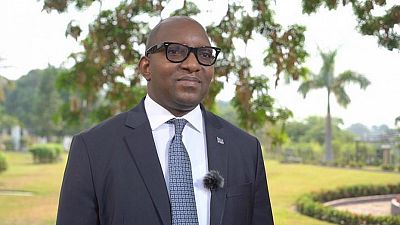


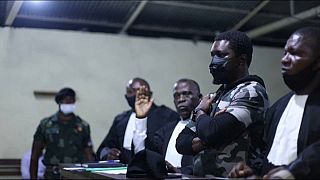
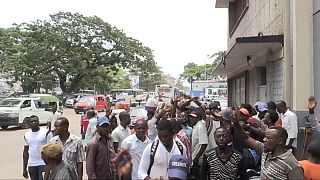
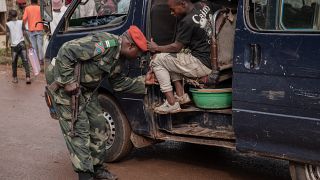
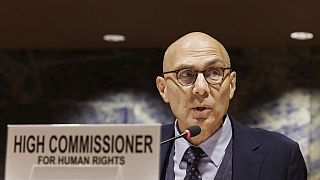
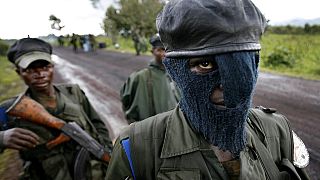
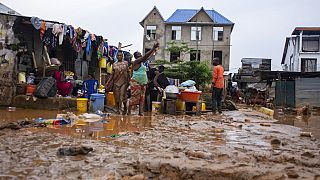
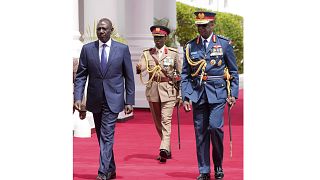
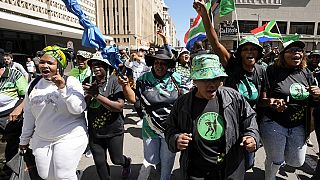
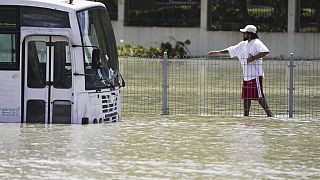
00:52
Tanzanian president in Turkey for 5-day state visit
01:30
UN reports widening global inequality in sexual and reproductive health and rights
01:00
South Africa inflation eases in March
01:02
Pics of the day: April 16, 2024
00:50
Ghana still striving to reach debt deal with bondholders
02:18
Young Ugandans dream of being professional wrestlers